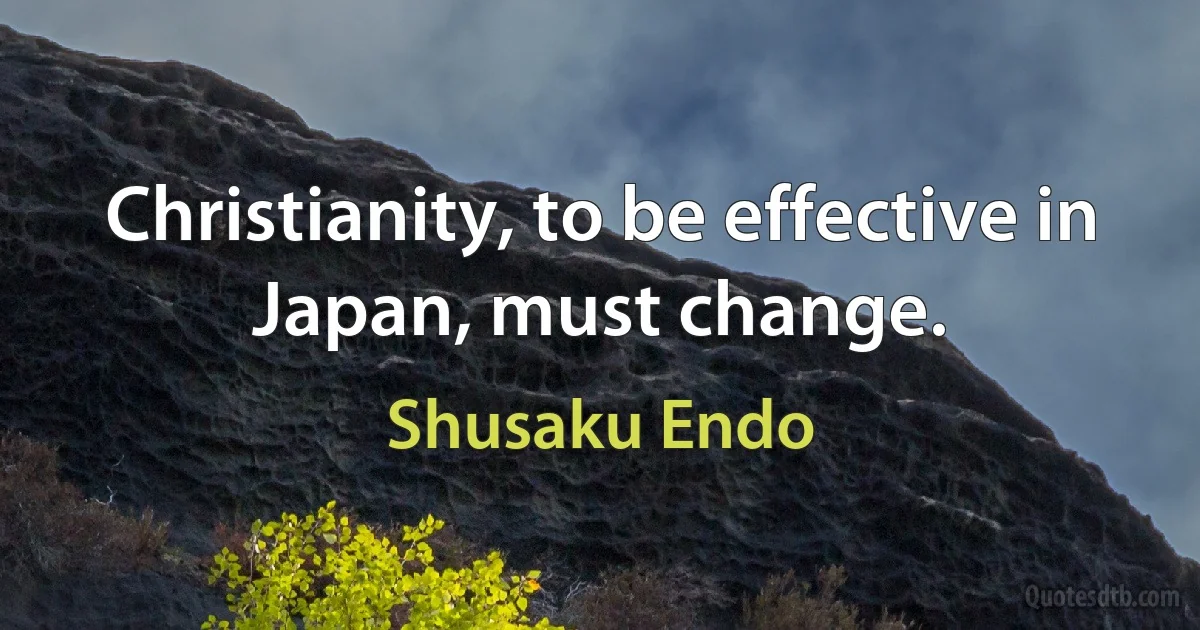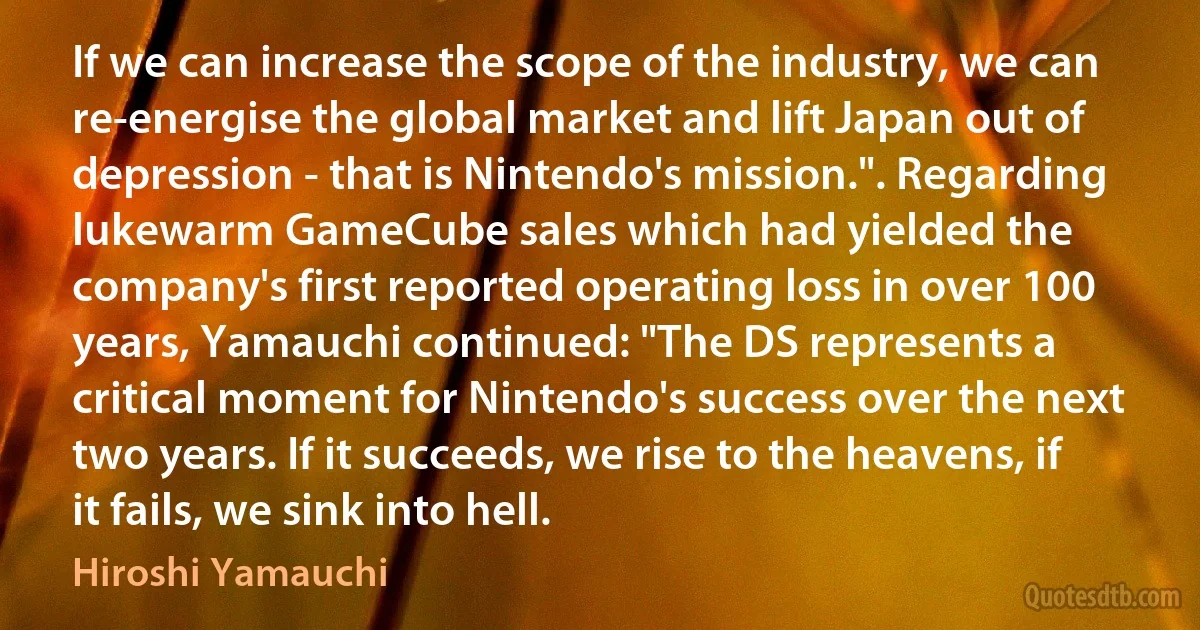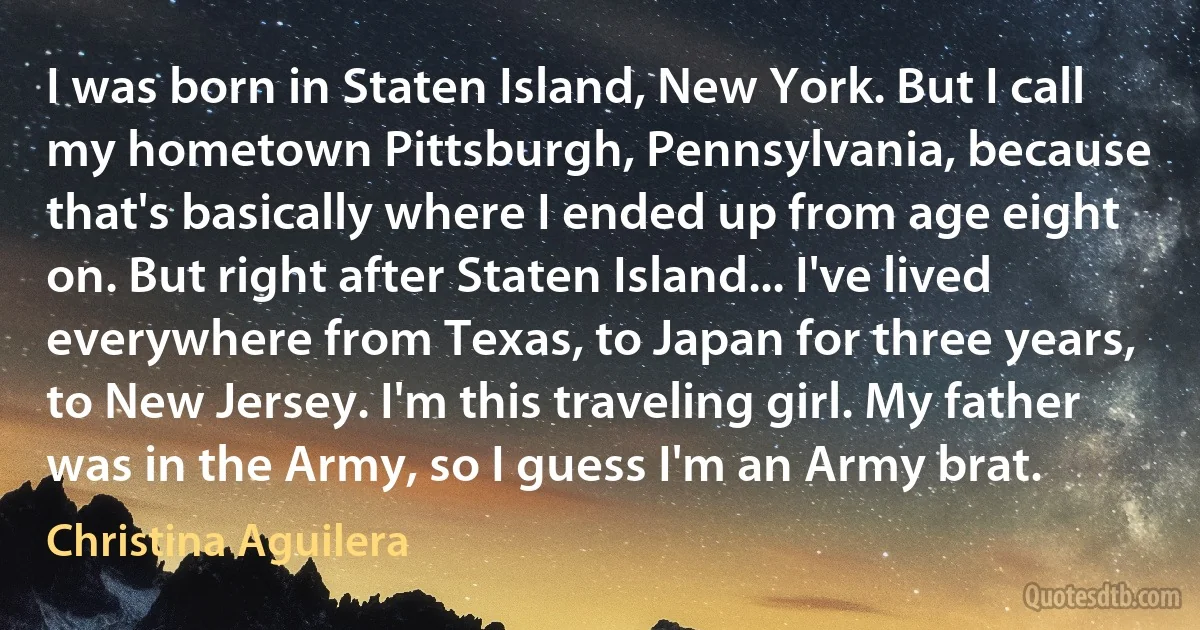Japan Quotes - page 9
That abolition of the privy purse will strengthen and ensure success of democracy is pure bunkum. Advanced countries like Britain and Japan are not less democratic or less progressive for the maintenance of their kings and princes. Royalty was not abolished even by socialist parties when they came to power in these countries.

Charan Singh
Germany agreed to restrict her Navy to one third the size of the British but was accorded the right to build submarines, explicitly denied her by the peace treaty, up to 60 percent of British strength, and to 100 percent in case she decided it was necessary to her security, which she shortly did. Germany also pledged that her U-boats would never attack unarmed merchant ships, a word that she went back on from the very beginning of the second war. As soon as the deal with Britain was concluded Germany laid down two battleships, the Bismarck and Tirpitz, with a displacement of over 45,000 tons. By the terms of the Washington and London naval accords, Britain, France, Italy, Japan, and the United States had to limit their battleships to 35,000 tons. Great Britain, as the French contended, had no legal right to absolve Germany from respecting the naval clauses of the Versailles Treaty. And, as many Frenchmen added, no moral right either.

William L. Shirer
Bush, and Blair, and the prime minister of Japan, and Berlusconi, these people are criminals, and they are responsible for mass murder in the world, for the war, and for the occupation, through their support for Israel, and through their support for a globalized capitalist economic system, which is the biggest killer the world has ever known. It has killed far more people than Adolf Hitler. It has killed far more people than George Bush. The economic system which these people support, which leaves most of the people in the world hungry, and without clean water to drink. So we're going to put them on trial, the leaders, when they come. They think they're coming for a holiday in a beautiful country called Scotland; in fact, they're coming to their trial.

George Galloway
The thought struck me for the first time today that our duty to our country may not terminate with the peace – apart, I mean, from the duty of begetting children to bear arms for the King in the next generation. To be more explicit, I see growing on the horizon the greater peril than Germany or Japan ever were; and if the present hostilities do not actually merge into a war with our terrible enemy, America, it will remain for those of us who have the necessary knowledge and insight to do what we can where we can to help Britain be victorious again in her next crisis.

Enoch Powell
If identical goods were being produced at widely differing efficiency in different parts of the United Kingdom or if the United Kingdom and Germany, or Japan, or the United States, were part of a single unit with a single currency, then of course the less efficient producers would be knocked out. That is why Germany is so keen for Britain to go into the European Monetary System, so that it can wipe out the British industries which it is in competition.

Enoch Powell
I dream of helping liberate my homeland from this transient medieval system of clerical rule. It is the Iranian people whose dream and decision will determine the final form of our future constitution and government. Having said that, and in view of my homelands culture and history, I am confident that a modern constitutional monarchy, similar to that of Japan, Spain, UK and Sweden, will be perfectly capable in institutionalizing democracy and help usher in modernity, progress and development.

Reza Pahlavi
One of our competitors is a manufacturer in Japan who wants to capture every one of your entertainment dollars transporting all your content between all of your electronic devices on their memory sticks. We are not that company. And there is another company out there who doesn't care what you do, as long as you do it on their operating system. We are not that company either.

Reggie Fils-Aimé
To recount the history of assassination since the beginning of our foreign intercourse - in the beginning, people simply hated the foreigners because all foreigners were "impure" men who should not be permitted to tread the sacred soil of Japan... As I have said before, I felt my life in greatest danger during the twelve or thirteen years around the period of the [Meiji] Restoration.

Fukuzawa Yukichi
On reaching the age of eighty, I feel fortunate that I am able to lead a life always feeling gratitude to those who have rebuilt Japan and who continue to commit themselves across the nation to the betterment and development of our country in various ways. Having already lived eighty years, I am somewhat perplexed by the question about my life in the coming years, but I would say that, while accepting the limits arising from age, I hope to continue to fulfill my role as best I can.

Akihito
After the war, Japan was occupied by the allied forces, and based on peace and democracy as values to be upheld, established the Constitution of Japan, undertook various reforms and built the foundation of Japan that we know today. I have profound gratitude for the efforts made by the Japanese people at the time who helped reconstruct and improve the country devastated by the war. I also feel that we must not forget the help extended to us in those days by Americans with an understanding of Japan and Japanese culture. Today, more than sixty years since the end of the war, we have seen that, in the face of major disasters such as the Great East Japan Earthquake [March 11, 2011], there are so many people in Japan who value the bonds between people, can deal with various situations calmly, and work hard towards reconstruction. I have found this most reassuring.

Akihito
Japan is at the heart of India's Look East Policy. It is also a key partner in our economic development and in our quest for a peaceful, stable and prosperous Asia and the world. Anchored in our shared values and interests, the partnership between a strong and economically resurgent Japan and a transforming and rapidly growing India can be an effective force of good for the region.

Manmohan Singh
From the way of Go, the beauty of Japan and the Orient had fled. Everything had become science and regulation. The road to advancement in rank, which controlled the life of a player, had become a meticulous point system. One conducted the battle only to win, and there was no margin for remembering the dignity and the fragrance of Go as an art.

Yasunari Kawabata
Never before in the history of warfare has there been a more convincing example of the effectiveness of sea power than when, despite this undefeated, well armed, and highly efficient army, Japan surrendered her homeland unconditionally to the enemy without even a token resistance. The devastation wrought by past bombings plus the destruction of the atomic bombs spelled nothing less than the extinction of Japan. The bases from which these attacks were launched- Saipan, Iwo Jima, and Okinawa- were to have been the spring boards for the mightiest sea-borne invasion yet conceived by man. The "fighting fleets" of the United States which had made possible every invasion victory for America were ready and waiting. The Japanese had two alternatives; to fight and face destruction, or to surrender. The Imperial Japanese Empire chose to surrender.

William Halsey



